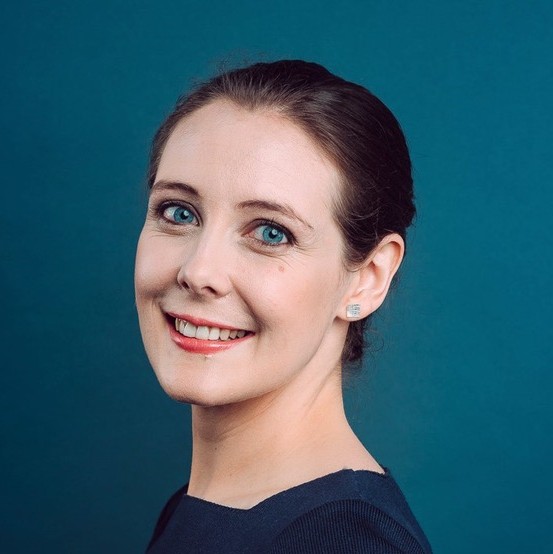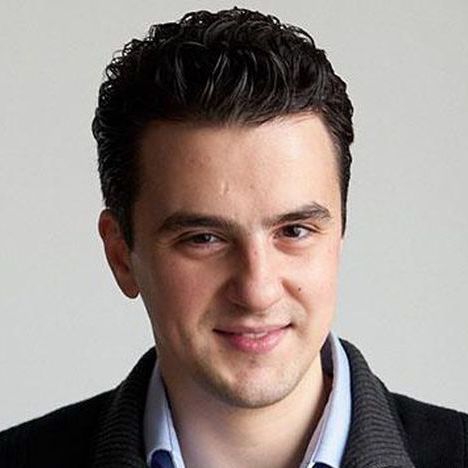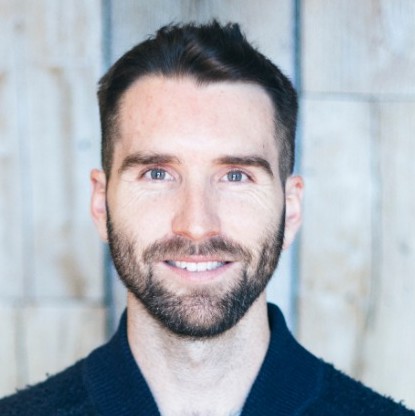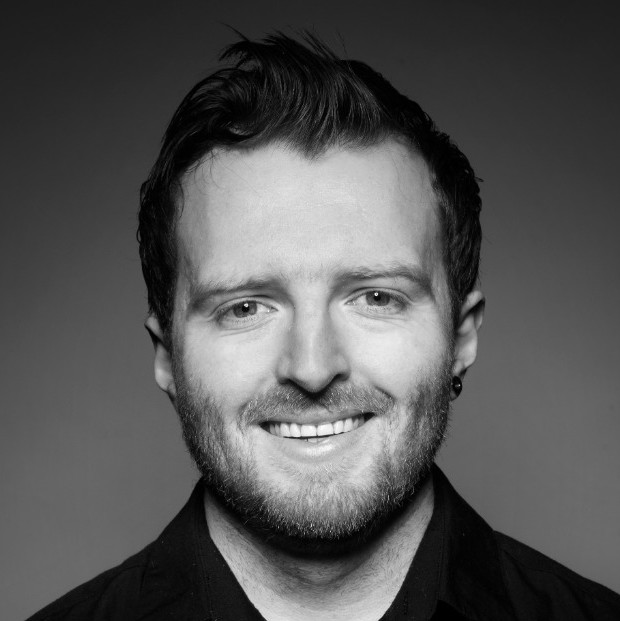The Europas Awards for European Tech Startups is doing what everyone in tech has done before: pivoting! Given the COVID-19 pandemic, we will be ‘going virtual’ on an amazing new platform, to be unveiled. (OK, but not VR – just yet!). A percentage of proceeds from the event will be donated to charities across Europe helping to fight the pandemic.
Judging will be entirely virtual and the Awards themselves will be announced live on 25th June at an online event which will feature special guests, and live entertainment — so we can party!. All long-listed companies in the People’s Vote will be showcased on TechCrunch.
Of key interest to startups short-listed in the awards will be the opportunity to attend over 20 workshops built around the awards categories, to which investors will be invited. That’s 20+hours of programming. Shortlisted companies will be able to pitch live on the platform, with slides. IN addition the “Pathfounder Sessions” will offer exclusive workshops with specially invited guests, aimed at European startups raising money at this time.
If you’d like to talk about sponsoring, please contact Claire Dobson on claire@thepathfounder.com. Sponsors will be able to attend and participate in workshops.
The application form to enter is here.
NEW CLOSING DATE FOR APPLICATIONS: 24 April 2020
Our new platform will even allow everyone to network virtually and easily exchange contact details, just as you would at a real-world event.
Our virtual attendees will be limited to only 500 people, and will include only Investors, Founders and Senior Executives of mid to late-stage companies as well as some of the newest companies on the scene.
The Europas is always attended by journalists from major tech titles, newspapers and business broadcasters, and will still be.
The initial long-list will draw from late-stage seed and Series A companies tackling these ambitious goals with proven product-market fit and growing traction who have been carefully scouted and invited to apply.
We are delighted to unveil our judges for the awards, listed below.
The Awards — which have been running for over 10 years — will be live held on the evening of 25 June 2020 from the London time zone.
TechCrunch is once more the exclusive media sponsor of the awards and conference, alongside The Pathfounder.
We’re scouting for the top late-stage seed and Series A startups in 23 categories. After a decade of identifying the most innovative tech startups in Europe including Spotify, Transferwise, Soundcloud, and Babylon Health, The Europas has shown itself capable of finding Europe’s hottest startups. The Europas Awards have been going for the last 10 years, and we’re the only independent and editorially driven event to recognise the European tech startup scene. The winners have been featured in Reuters, Bloomberg, VentureBeat, Forbes, Tech.eu, The Memo, Smart Company, CNET, many others — and of course, TechCrunch.
You can nominate a startup, accelerator or venture investor that you think deserves to be recognized for their achievements in the last 12 months. This year we are particularly looking at startups that are able to address the SDGs/Globals Goals.
Timeline of The Europas Awards deadlines:
24 April___________Final deadline to submit applications
27 April___________All startups notified of longlist
04 May_____________Public voting begins
17 May_____________Public voting ends
25 May_____________Shortlist announced
26 May – 16 June___Awards Category Deep Dives + Pitches
17- 23 June________Pathfounder Workshops
25 June____________Winners announced / Virtual Awards
The Pathfounder Workshops
Prior to the awards we will be holding special, premium content events The Pathfounder, designed be a “fast download” into the European tech scene for founders looking to raise money or enhance their business. This will be followed by the awards!
The Europas “Diversity Pass”
We’d like to encourage more diversity in tech! That’s why we’ve set aside a block of free tickets to ensure that pre-seed female and BAME founders are represented at The Europas. This limited tranche of free tickets ensures that we include more women and people of colour who are specifically “pre-seed” or “seed-stage” tech startup founders. If you are a women/BAME founder, apply here for a chance to be considered for one of the limited free diversity passes to the event.
Lastly, remember: stay home, stay safe!
Meet our speakers and judges:

Anne Boden
CEO
Starling Bank
Anne Boden is founder and CEO of Starling Bank, a fast-growing U.K. digital bank targeting millions of users who live their lives on their phones. After a distinguished career in senior leadership at some of the world’s best-known financial heavyweights, she set out to build her own mobile bank from scratch in 2014. Today, Starling has opened more than one million current accounts for individuals and small businesses and raised hundreds of millions of pounds in backing. Anne was awarded an MBE for services to financial technology in 2018.

Bernhard Niesner
CEO and c-founder
busuu
Bernhard co-founded busuu in 2008 following an MBA project and has since led the company to become the world’s largest community for language learning, with more than 90 million users across the globe. Before starting busuu, Bernhard worked as a consultant at Roland Berger Strategy Consultants. He graduated summa cum laude in International Business from the Vienna University of Economics and Business and holds an MBA with honours from IE Business School. Bernhard is an active mentor and business angel in the startup community and an advisor to the Austrian Government on education affairs. Bernhard recently received the EY Entrepreneur of the Year 2018 UK Awards in the Disruptor category.

Chris Morton
CEO and founder
Lyst
Chris is the founder and CEO of Lyst, the world’s biggest fashion search platform used by 104 million shoppers each year. Including over 6 million products from brands including Burberry, Fendi, Gucci, Prada and Saint Laurent, Lyst offers shoppers convenience and unparalleled choice in one place. Launched in London in 2010, Lyst’s investors include LVMH, 14W, Balderton and Accel Partners. Prior to founding Lyst, Chris was an investor at Benchmark Capital and Balderton Capital in London, focusing on the early-stage consumer internet space. He holds an MA in physics and philosophy from Cambridge University.

Claire Novorol
Co-Founder & Chief Medical Officer
Ada Health
Dr. Claire Novorol is Chief Medical Officer and co-founder of Ada Health. Prior to founding Ada, Claire worked as a Paediatrician within the NHS before specialising in Clinical Genetics. She has degrees in Pathology and Medicine as well as a PhD in Neuroscience from the University of Cambridge. Claire is also the founder of Doctorpreneurs, a global community for healthcare professionals interested in innovation and entrepreneurship. She is a member of the Advisory Team Steering Group for the AHSN Network Community for Artificial Intelligence, an Entrepreneurship Expert with the Entrepreneurship Centre at Saïd Business School, University of Oxford and a member of the UK Digital Health Council. In 2018, Claire was featured on Business Insider’s Tech 100: The 100 coolest people in UK tech and Forbes’ Europe’s Top 50 Women in Tech, and she is a regular contributor to Forbes, writing on healthtech.

Clare Jones
Chief Commercial Officer
what3words
Clare is the chief commercial officer of what3words; prior to this, her background was in the development and growth of social enterprises and in impact investment. Clare was featured in the 2019 Forbes 30 under 30 list for technology and is involved with London companies tackling social/environmental challenges. Clare also volunteers with the Streetlink project, doing health outreach work with vulnerable women in South London.

Emily Orton
Co-founder & Chief Marketing Officer
Darktrace
Emily is responsible for global marketing and communications, a role she has held since Darktrace’s foundation in 2013. She is also a commentator on cyber security issues and has appeared in leading media outlets including BBC News, Sky News and Channel 4. Emily has ten years’ experience in technology marketing. She has an MA in Modern Languages from the University of Cambridge.

Husayn Kassai
CEO and co-founder
Onfido
Husayn Kassai is the Onfido CEO and co-founder. Onfido helps businesses digitally onboard users by verifying any government ID and comparing it with the person’s facial biometrics. Founded in 2012, Onfido has grown to a team of 300 across SF, NYC and London; received over $100 million in funding from Salesforce, Microsoft and others; and works with over 1,500 fintech, banking and marketplace clients globally. Husayn is a WEF Tech Pioneer; a Forbes Contributor; and Forbes’ “30 Under 30”. He has a BA in economics and management from Keble College, Oxford.

Julia Hawkins
Partner
LocalGlobe
Julia Hawkins is a Partner at LocalGlobe. Previously, Julia worked at Goldman Sachs, Last.fm, BBC Worldwide and most recently Universal Music where she set up their Corporate Venture arm and led investments in ROLI and Sofar Sounds among others. Julia enjoys working with mission driven founders and has a keen interest in consumer, entertainment, media and health tech from wellness to genomics. She holds a 1st from LSE, is a Kauffman Fellow and Board Trustee of Shwachman Diamond Syndrome UK, a charity dedicated to finding a cure for SDS, a rare genetic disease.

Kieran O’Neill
CEO and co-founder
Thread
Thread makes it easy for guys to dress well. They combine expert stylists with powerful AI to recommend the perfect clothes for each person. Thread is used by more than 1 million men in the U.K., and has raised $35 million from top investors, including Balderton Capital, the founders of DeepMind and the billionaire former owner of Warner Music. Prior to Thread, Kieran founded one of the first video sharing websites at age 15 and sold it for $1.25 million at age 19. He was then CEO and co-founder of Playfire, the largest social network for gamers, which he grew to 1.5 million customers before being acquired in 2012. He’s a member of the Forbes, Drapers and Financial Times 30 Under 30 lists.

Lina Wenner
Principal
Firstminute Capital
Lina joined firstminute from the Boston Consulting Group, where she worked alongside global corporates across Consumer, Energy and Heavy Industrials, advising on digital strategy, restructuring and M&A as a member of the corporate finance team. She gained an MPhil in Management from the University of Cambridge and a Bachelor’s degree in Psychology, Economics and Statistics from the University College Utrecht, the Netherlands, where she graduated with Summa Cum Laude. At firstminute, Lina leads on sourcing for the Nordic and German-speaking regions and has a strong interest in digital health, robotics, direct-to-consumer brands and femtech. She sits as a board observer of Evolution AI.

Luca Bocchio
Principal
Accel
Luca Bocchio joined Accel in 2018 and focuses on consumer internet, fintech and software businesses. Luca led Accel’s investment in Luko, Bryter and Brumbrum. Luca also helped lead Accel’s investment and ongoing work in Sennder. Prior to Accel, Luca was with H14, where he invested in global early and growth-stage opportunities, such as Deliveroo, GetYourGuide, Flixbus, SumUp and SecretEscapes. Luca previously advised technology, industrial and consumer companies on strategy with Bain & Co. in Europe and Asia. Luca is from Italy and graduated from LIUC University.

Nate Lanxon (Speaker)
Editor and Tech Correspondent
Bloomberg
Nate is an editor and tech correspondent for Bloomberg, based in London. For over a decade, he has particularly focused on the consumer technology sector, and the trends shaping the global industry. Previous to this, he was senior editor at Bloomberg Media and was head of digital editorial for Bloomberg.com in Europe, the Middle East and Africa. Nate has held numerous roles across the most respected titles in tech, including stints as editor of WIRED.co.uk, editor-in-chief of Ars Technica UK and senior editor at CBS-owned CNET. Nate launched his professional career as a journalist by founding a small tech and gaming website called Tech’s Message, which is now the name of his weekly technology podcast hosted at natelanxon.com.

Tania Boler
CEO and founder
Elvie
Tania is an internationally recognized women’s health expert and has held leadership positions for various global NGOs and the United Nations. Passionate about challenging taboo women’s issues, Tania founded Elvie in 2013, partnering with Alexander Asseily to create a global hub of connected health and lifestyle products for women.

Holly Jacobus
Investment Partner
Joyance Partners, New York
Holly Jacobus is an Investment Partner with Joyance Partners, investing in companies with the capacity to deliver Delightful Moments in US and EU. Her focus is new foods, consumer packaged goods, sexual wellness, femtech, farmtech and earth-positive manufacturing methods. Holly spent her career growing startups through early stage sales and PR, most recently as the Chief Revenue Officer at Citia, a NYC based global content creation, storage and distribution platform servicing Fortune 500 brands including GE (global), Mastercard (US), Viacom (global), and P&G (global). Holly was raised on a farm in California where she became the first graduate of Stanford University’s online high school (EPGY OHS) and an Academic All American Volleyball Player. She later studied bioengineering at UC Berkeley and French at Georgetown University where she played D1 Volleyball. When Holly isn’t investing or helping companies scale, you can find her backpacking the Sierra Nevadas or skiing the Tetons with her dog Smoky. Recent investments include: Unbound, WholyMe, TeaCrush, Finless Foods, Loli, MushLab, Weller, & Sigrid Therapeutics.


















